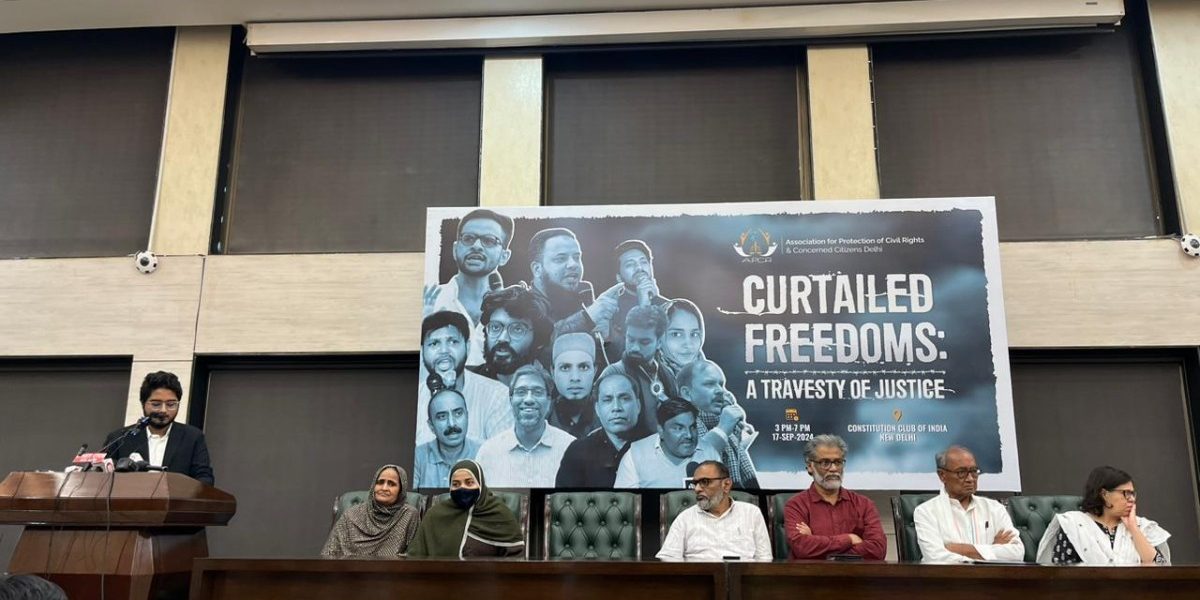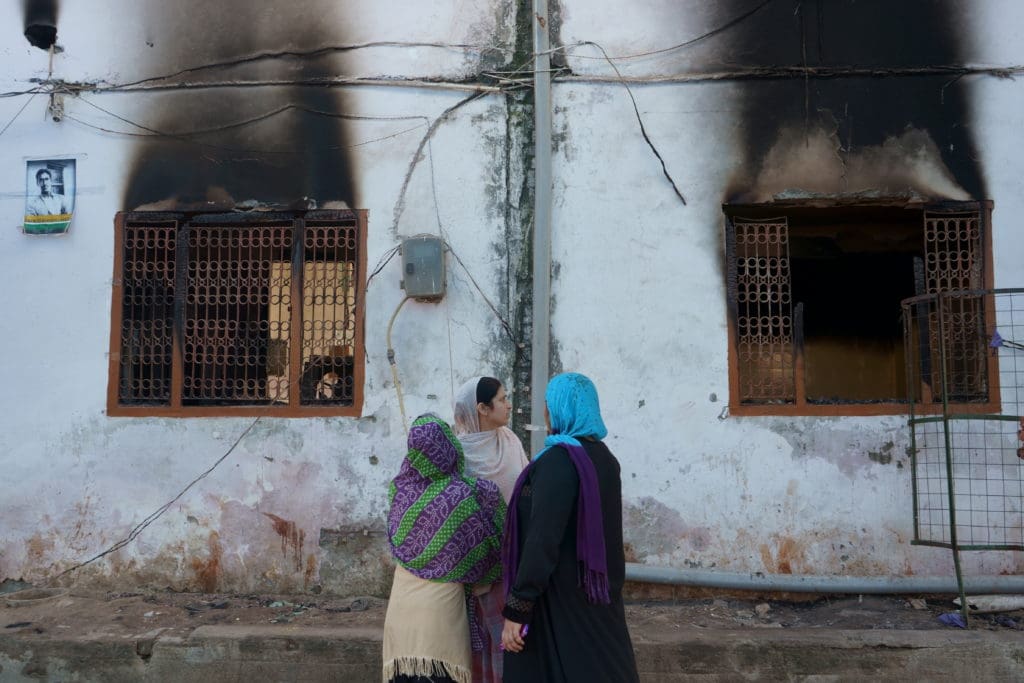
New Delhi: As former JNU student leader Umar Khalid completed four years in jail this month, his family along with those of other activists who participated in the CAA-NRC protests and were imprisoned following the 2020 Delhi riots, came together demanding their immediate release while highlighting the selective application of “bail is rule, jail is the exception” principle in granting bail despite recent pronouncements by the Supreme Court.
“It is said that any democratic society has three pillars – the executive, the legislature and the judiciary. And these should be separate. But if the Chief Justice of India invites the prime minister to his house (for a puja) and that is made viral, do I have any hope of getting justice?” said Khalid’s father S.Q.R Ilyas while speaking at a public meeting organised by the Association for Protection of Civil Rights (APCR) in New Delhi.
Ilyas questioned why action is not taken against police officials when a person is found innocent.
“It is time to raise questions not just against the judiciary and the government but also against the opposition,” he said.
Along with Ilyas, the families of other political prisoners – Gulfisha Fatima, Meeran Haider, Khalid Saifi, Athar Khan – all of whom participated in the CAA-NRC protests and were arrested in 2020 following the riots in Delhi, were also present at the public meeting and demanded their immediate release.
This story was originally published in thewire.in. Read the full story here.





